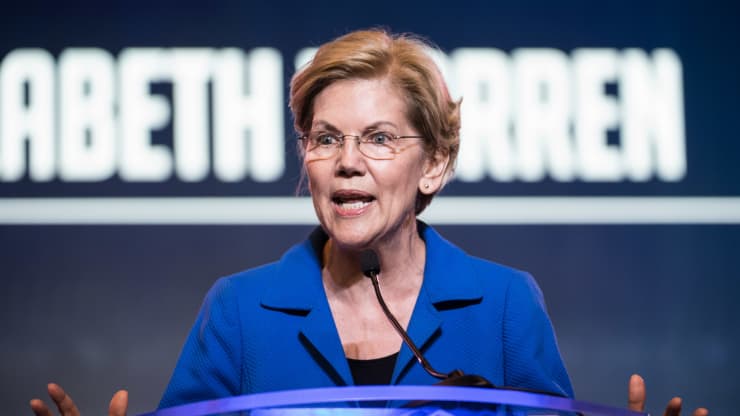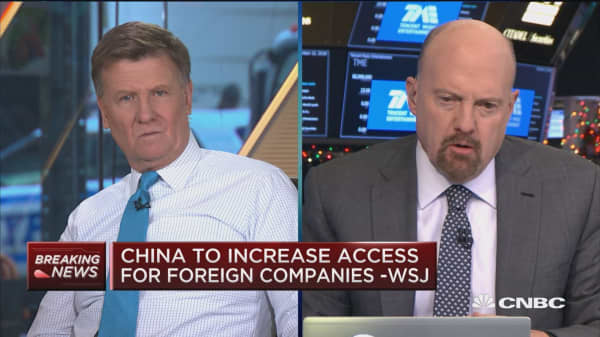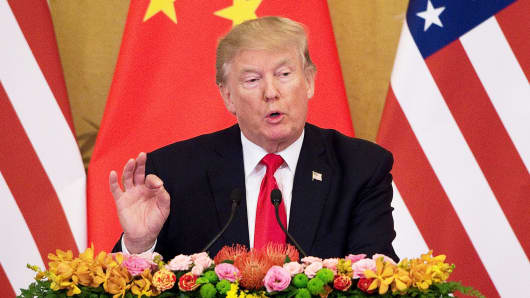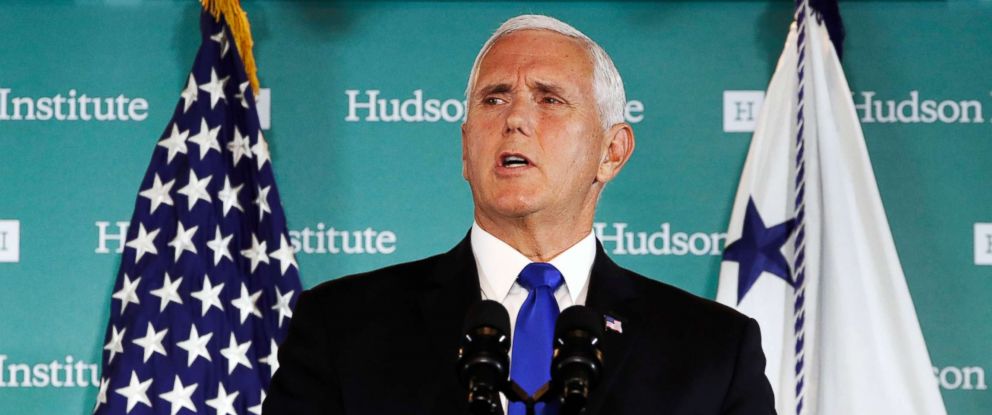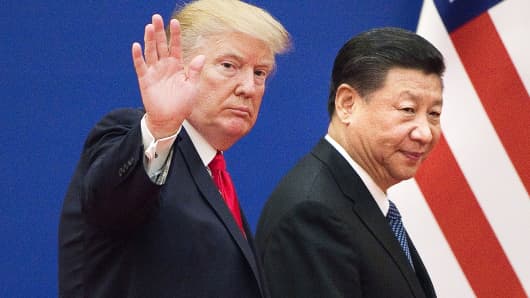- CNBC’s Jim Cramer lays out his case for holding a hard-line position in the U.S.-China trade war.
- “The economists will tell you that tariffs raise the cost of living. They’re not wrong ... but a lot of their predictions seem overblown. A lot of companies can do a lot to mitigate the damage,” the “Mad Money” host says.
- “I almost hope China reneges on its promises so that President Trump can ramp the tariffs back up and get an even better deal later on,” he says.

CNBC’s Jim Cramer on Thursday laid out his case for holding a hard-line position in the U.S.-China trade war.
The “Mad Money” host said he’s cynical about free trade as opposed to most Wall Street professionals, highlighting that China’s practices of subsidizing domestic companies has negatively impacted America’s manufacturing economy, including electronics, toys and even gift wrapping, which once was a moneymaker for his father, “Pops.”
“With each of these items, I see a group of towns that’s been decimated by permanent, normal trade relations with China, just like the towns that made gift wrap for my dad’s” business, he said.
Cramer is in favor of the U.S. tariffs in place on billions of dollars’ worth of imports from China as a means to force the country to change its unfair trading practices.
For more than a year, the two countries have been engaged in a trade dispute that has escalated over time through a series of tit-for-tat duties.
The Trump administration on Thursday signaled that American and Chinese trade negotiators are nearing a “phase one” trade deal, which would be the first sign of concrete progress in the trade war. Without it, the U.S. plans to impose a new round of tariffs on more products.
“The economists will tell you that tariffs raise the cost of living. They’re not wrong — a tariff is a sales tax — but a lot of their predictions seem overblown,” he said.
The Trump administration on Thursday signaled that American and Chinese trade negotiators are nearing a “phase one” trade deal, which would be the first sign of concrete progress in the trade war. Without it, the U.S. plans to impose a new round of tariffs on more products.
“The economists will tell you that tariffs raise the cost of living. They’re not wrong — a tariff is a sales tax — but a lot of their predictions seem overblown,” he said.
“A lot of companies can do a lot to mitigate the damage.”
Cramer argued that businesses most affected by duties on China, particularly the retail industry, can move operations out of China to avoid tariffs or force Chinese suppliers to bear the costs.
Cramer argued that businesses most affected by duties on China, particularly the retail industry, can move operations out of China to avoid tariffs or force Chinese suppliers to bear the costs.
That includes bringing manufacturing jobs back to the U.S. or relocating factories to countries with better trade relations, unlike China, which has taken advantage of the U.S. for decades, he said.
“If we’re going to trade jobs for cheap stuff, at the very least we should get a good exchange rate,” he added.
In 2018, the U.S. trade deficit with China was about $378 billion, according to the Office of the U.S. Trade Representative.
“If we’re going to trade jobs for cheap stuff, at the very least we should get a good exchange rate,” he added.
In 2018, the U.S. trade deficit with China was about $378 billion, according to the Office of the U.S. Trade Representative.
Despite the on-again, off-again trade talks between the world’s largest economies, the S&P 500 has rallied more than 26% to new heights in 2019.
“This was the perfect moment to crack down on them because our economy’s so strong, their economy isn’t,” Cramer said.
“This was the perfect moment to crack down on them because our economy’s so strong, their economy isn’t,” Cramer said.
“I almost hope China reneges on its promises so that President Trump can ramp the tariffs back up and get an even better deal later on.”

